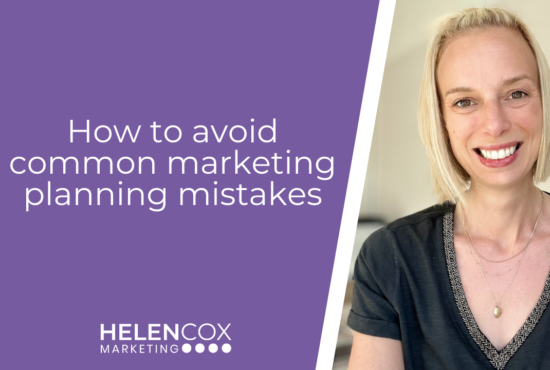How to map out content for your professional services buyer journey
One of the main marketing mistakes that professional services firms make is that they think that marketing is just needed at the beginning of the sales process, and then, after that, they can give up on the idea of trying to market (and create content that appeals).
To create a truly client-centric approach to how you run your firm, you are going to need to recognise that content is important at every stage of the professional services buyer journey. It is just the type of content that you share which will change.
So, what are the stages of the buyer journey and what content is going to be most relevant at each one?
Awareness
The first stage in the content marketing journey is awareness. This is, as the name suggests, when your potential client becomes aware of who you are and what you can do. When it comes to marketing at this particular stage, you need to try and address any issues that your clients are likely to have and then ensure that you set out to solve them.
Content should be informative, showing that you truly understand these pain points. Then, as it moves through the content, you can then think about how you can promote your services and educate the potential client on how you can provide the solution that they are going to need.
Social media content should be the same type of information that you will present in your blogs. But, it should be in bitesize rather than large chunks. You want to leave the buyers feeling that they want to know more about who you are and what you can offer.
You will also want to make sure that they know exactly how to contact you when they do want to learn more.
Consideration
The next stage of the journey is a consideration. Your potential client will be aware of who you are and what your firm can do. But, they need to think about whether or not it is going to be the right fit for them.
During this stage, they will be taking the time and making the effort to research all of their options. Gathering information and trying to ascertain the pros and cons of all of their choices. This means that your content needs to be created in a way that showcases what you can offer and how these services can provide a solution that your clients may be looking for.
One way that you can do this is to share reports.
These may not be the most interesting on the surface, but they can form a key part of the decision-making process.
The information that is contained in reports will be credible. Which means that your clients can trust it and feel that they can use it to think about what they will choose is right for them.
If you feel that the more formal nature of a report is not going to match the clients that you are trying to appeal to, then you may want to consider eBooks instead. These are going to provide value to those who download the books, giving them possible solutions that they can then use not only in their lives but also in their buying decisions too.
It is also important to remember that creating eBooks and having them on offer to download, will also help you to gather information on potential clients that can then (permission granted of course) create an email database that you can then use.
You can also set up webinars during this part of the process. Webinars are another way to provide useful information, but, compared to written content, such as blogs, they are more interactive. They are attended in real-time (or offered out as a recording to those who were unable to) and can then be watched in their own time.
Another visual way to present this information is with an infographic. These pick out the key messages that you want to share and then present them in a way that is easy to digest for the audience.
They should be bright, bold and easy to read and they should be able to grab the attention of those who need it.
Decision
The final stage is the actual decision. This is when the client will choose the right solution (or professional services firm) for them. They may make a decision just as it is, or, they may also decide to come up with a shortlist and then look at these options in even closer detail.
The main focus of any content during this stage is to be convincing. After all, you want those clients to come on board, which means that you are going to have to show yourself in the best light possible.
You want to highlight all the ways that you, as a firm, are unique, as well as what all those services and unique points can offer the clients who decide to go with you over your competitors.
One great way to convince those people to sign up is to share case studies. These present a previous client and outline how you helped them. You want to make sure that their issue is clear as well as how you were able to make sure that they received the help that they needed.
Whilst you will usually be the one to write a case study. Getting some feedback from those clients is also important, if possible, and you can add it to the case study as an additional testimonial.
Take the idea of a testimonial up a level and request sending (and then sharing) it via a video.
This may not be something that every client will be happy to do, but, if you do manage to find one that can, this will mean that you have an easy-to-digest form of marketing during the decision part of the process.
When it comes to making content at these later stages, one thing that you want to do is keep it clear, concise and brief. Too much and you may lose your audience and end up having to start at the beginning of the funnel again.
As you can see, there is a lot to think about when it comes to marketing through the buyer journey. All you need to do is identify each stage and think about how you can always show off your professional services firm and the professional services that you can provide. All in the best light possible.
Some of my services:
Marketing Consultancy Services
Need help?
If you would like help with your marketing then bringing on a marketing consultant with a fresh pair of eyes can make all the difference. I work with B2B businesses and professional service firms in London, Kent, UK and Europe as well as specialising as a Legal Marketing Consultant. Please get in touch or book a free 30-minute consultation.




